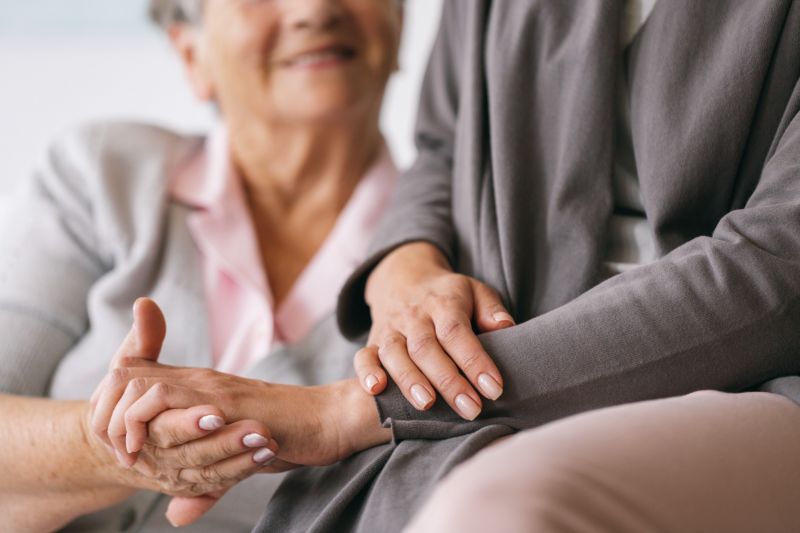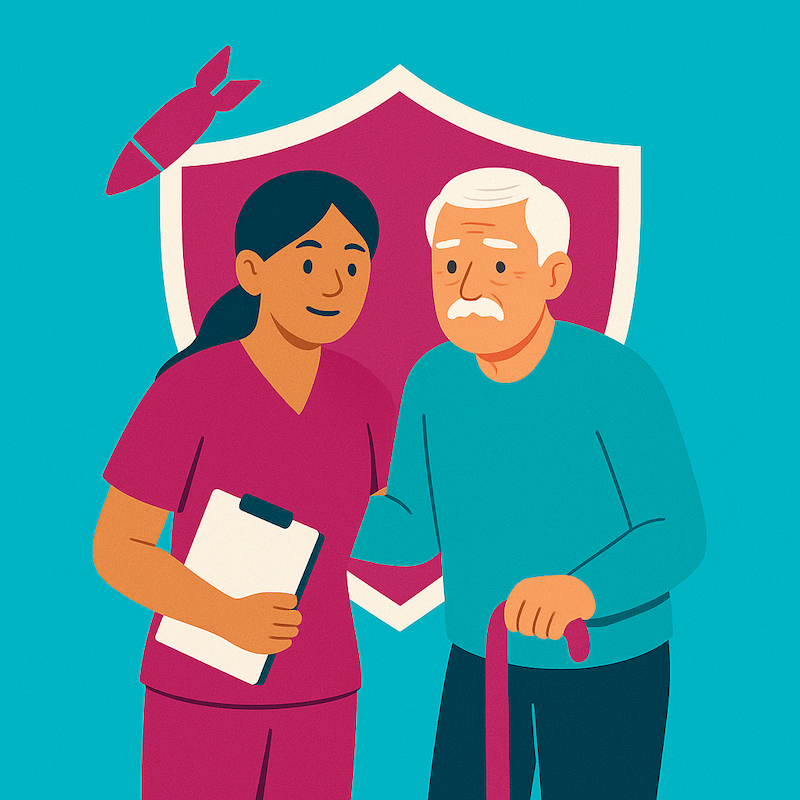How Caregivers Working Overseas Support the Mental Health of Elderly Patients
iSavta | 09.07.2023

In an increasingly globalized world, it is not uncommon for families to be separated across borders due to work opportunities. This separation can be particularly challenging for elderly individuals who require regular support and care. However, advancements in technology and the growing availability of caregivers working overseas have provided a lifeline for these families. This article explores how caregivers working overseas support the mental health of elderly patients, highlighting the importance of their role in maintaining emotional well-being.
Emotional Connection and Companionship
One of the fundamental aspects of caregiving is the provision of emotional support and companionship. Caregivers working overseas play a crucial role in maintaining a sense of connection with elderly patients. Through regular communication via video calls, messaging apps, or phone calls, caregivers offer companionship and alleviate the feelings of loneliness and isolation that can often plague the elderly. This emotional connection contributes significantly to the mental well-being of the elderly patients, providing them with a sense of comfort and security.
Continuity and Familiarity
Elderly individuals often thrive on consistency and familiarity, especially when it comes to their daily routines and personal care. Caregivers working overseas bridge this gap by ensuring continuity in their patients' lives. They work closely with family members and local caregivers to establish routines, maintain medication schedules, and provide personalized care based on the individual's needs. This continuity not only supports the mental well-being of the elderly but also gives them a sense of stability and reassurance.
Cultural Sensitivity and Understanding
Culture plays a significant role in shaping an individual's identity and values. Caregivers working overseas are often from the same cultural background as their elderly patients, or they receive specific training to understand and respect the cultural nuances of their patients. This cultural sensitivity helps establish a deeper connection and rapport between the caregiver and the elderly patient. By incorporating cultural practices and traditions into their caregiving approach, overseas caregivers provide a sense of familiarity and promote mental well-being by fostering a supportive and inclusive environment.
Cognitive Stimulation and Mental Engagement
Keeping the mind active and engaged is essential for maintaining good mental health, especially in older adults. Caregivers working overseas play a vital role in providing cognitive stimulation to their elderly patients. Through activities such as reading, puzzles, memory games, and engaging conversations, caregivers help keep the mind sharp and prevent cognitive decline. These mental exercises not only contribute to improved cognitive function but also enhance the overall mental well-being of the elderly.
Advocacy and Emotional Regulation
As individuals age, they may face physical and mental health challenges that require ongoing medical attention and support. Caregivers working overseas act as advocates for their elderly patients, ensuring that they receive the necessary medical care and attention. They help manage medication schedules, accompany them to medical appointments, and communicate with healthcare professionals on their behalf. Additionally, caregivers provide emotional regulation by offering a safe space for the elderly to express their fears, concerns, and anxieties, thus alleviating mental distress and promoting emotional well-being.
Caregivers working overseas provide invaluable support for the mental health of elderly patients. Through emotional connection, continuity, cultural sensitivity, cognitive stimulation, and advocacy, these caregivers play a vital role in maintaining the well-being of the elderly. While physical distance may separate families, caregivers bridge this gap through their unwavering commitment and dedication. Their tireless efforts not only contribute to the mental health of elderly patients but also offer peace of mind to their families, knowing that their loved ones are well cared for. As we continue to navigate an increasingly globalized world, the significance of caregivers working overseas in supporting the mental health of elderly patients cannot be overstated.











